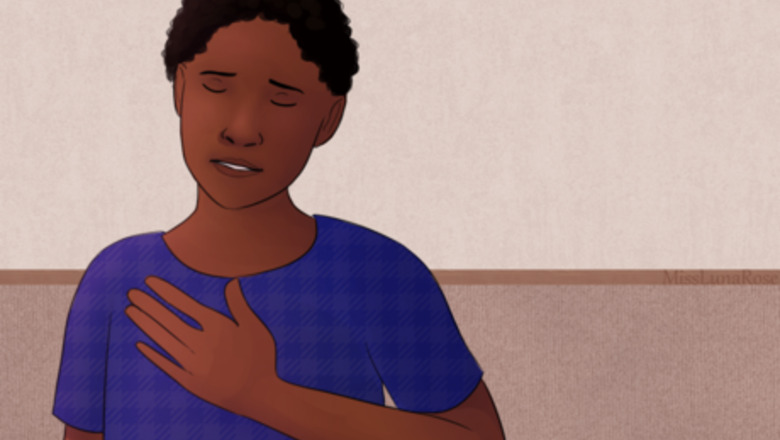
views
Recognizing the Signs
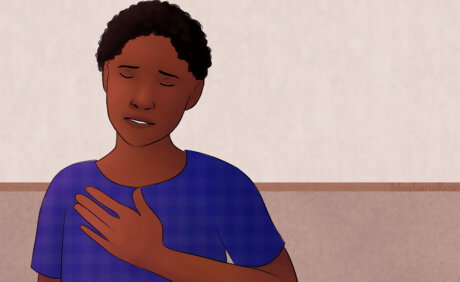
Keep an eye out for emotional signs of stress. Keep track of your or your loved one's emotional state during the day, and notice when stress is building up. This will help you assess the risk of a meltdown. Looking frustrated, agitated, or overwhelmed Frowning, or looking upset Feeling bad about oneself

Look for physical and psychosomatic signs of stress. Symptoms of stress vary from person to person. Under stress, people may experience: Headache Tense muscles (may lead to aches and pains) Tightness or pain in the stomach Changes in appetite Decreased concentration Fatigue Clenched jaw
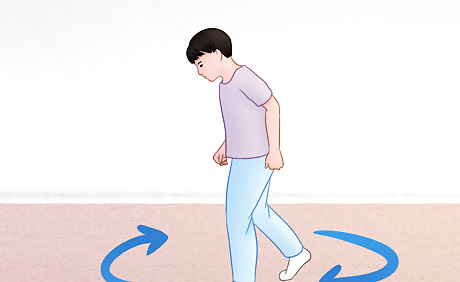
Look for self-calming behavior. Under stress, autistic people will naturally try to calm and protect themselves. Here are several things you may notice: Self-isolating Restricting sensory input, like covering ears or eyes Retreating deeper into one's own world Stimming more Using learned coping strategies (e.g. deep breaths)

Check the person's face. If you're checking on a loved one, a quick glance will usually let you see their expression. If you're the autistic person, and you aren't very aware of your mood or what your face is doing, you might touch your face or use a mirror. Bathroom mirrors are a good opportunity to observe your face. The tactic of excusing yourself to the restroom both removes you from the situation and allows you to "check-in" with what your facial muscles are indicating you are feeling. Feeling your face can also help detect stress. For instance, touching your eyebrows may reveal they are furrowed. Your jaw might be tight. Your temples could feel tight to the touch. All of these are physical indications that you are stressed.
Intervening Early

Follow your instincts. If you feel like sitting outside is better than sitting in a crowded cafeteria, go outside. If you think that stimming or wearing earplugs would help, make it happen, and don't worry about what others think. Your or your loved one's emotional health matters more than others' opinions.

See if you can leave a stressful situation. Try going outdoors for some fresh air, or taking a bathroom break and washing your face. Be polite, but firm (if need be) about your need to leave. Here are some ways to communicate that you need to take a break or leave: "I'm feeling a little off. I'm going to get some fresh air." "I'm going to the bathroom; I'll be right back." "I need to go so that I won't be late." (You don't need to specify that this "appointment" is with a DVD and a bowl of ice cream.) "It's getting late, and I'm getting tired. I'm going to head home." "This has been a wonderful party, but I have some homework/chores/confidential government work to do tonight. I'll see you tomorrow."

See which coping mechanisms would help with self-calming. Now is not the time to "be strong" or "tough it out," because this almost always backfires in the end. Instead, try a little quiet time or pampering. Use a favorite stim toy. Get deep pressure. Massages, heavy clothing, bear hugs, and tight squeezes are ways to get this. Eat something sweet or drink something warm. Do relaxation exercises, like deep breathing or imagery.

When in doubt, leave. Stress buildup worsens meltdowns, so a misguided attempt to "tough it out" can cause things to grow even worse. Escape as quickly as possible, take as much time as you or your loved one needs, and return once you feel better (if at all).
Living Well

Carry around some self-calming tools. Stock a bag with a few stim toys, lollipops, a handheld beanbag, lotion, bracelets, or whatever it is that helps with self-calming. This way, you'll be prepared when stress starts to build up.

Stim and exercise regularly. Stimming and exercise reduce stress, burn calories, and provide numerous other benefits. They will relieve excess energy from your system and boost your mood and ability to focus. Here are small alterations you can make to increase your activity: Take a 10-minute walk every evening. Bring a loved one and talk about your day. Play backyard sports with family members. Get off the bus one stop early and appreciate the fresh air. Swing. Substitute a desk chair for an exercise ball. Bounce as much as you please. Take your kids or siblings out to a park.
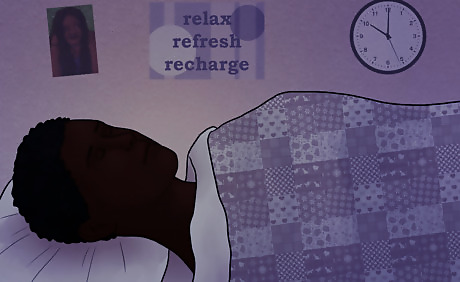
Eat well, and get enough sleep. Sleeplessness and poor diet can increase your levels of stress, thus making it harder for you to stop a meltdown. Unfortunately, many autistic people struggle with sleep. Melatonin supplements may help. Don't hesitate to talk to a doctor if you suspect a sleep disorder.

Find little ways to make your life easier. It is okay to make adjustments, and it is okay to be disabled in public. Try going to the autistic community (such as #AskAnAutistic) for tips from like-minded people. Ask for disability accommodations. These can help. Get foam earplugs, sunglasses, headphones, and hoodies to manage sensory input. Get a robotic vacuum cleaner, rather than trying to remember to clean by yourself. Skip social events that don't interest you. Socializing takes up energy, so skip any optional events that you think would be too draining. Make schedules, diagrams, and lists as memory aids.

Cut down on masking. "Autistic masking" is the practice of hiding one's autistic traits. However, pretending to be someone you're not has a steep cost. Autistic people who mask report exhaustion and have higher levels of anxiety and depression. To unmask more, you can... Stim more Skip the stressful eye contact Avoid or speak up about things that cause you pain (such as a loud blender) Say no to hugs if you don't feel like hugging Stop pretending to be okay when you're not Let yourself be "weird"Tip: If you're a parent, you may be unsure how to help your autistic child. Don't reward them for masking, especially at home. Listen to them when they speak up about discomfort so they know they don't have to pretend to be okay. Talk to them about masking and make home a safe place to "unmask."
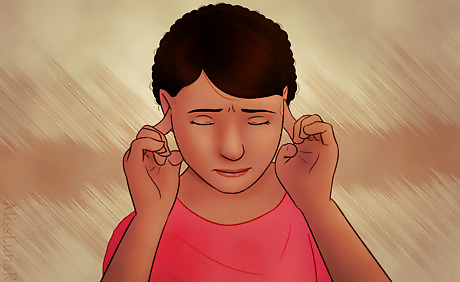
Know the triggers and work around them. If you can identify the things that bring on meltdowns, you can learn to avoid them, or prepare coping strategies beforehand.
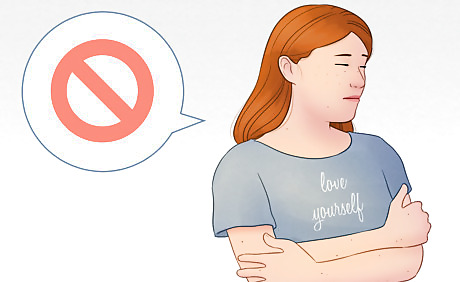
Get rid of stressful things and people, if possible. You might not be able to get rid of your father, your English class, or that yappy dog next door. But you do have the power to control some stressful aspects of your life. You can say something is not working, or a person is making your life miserable. Quitting is not always a bad thing; it can be a powerful act of self-care. For example: Say that you're taking college classes, but you are getting stressed out. You might consider dropping the most problematic classes and take a lighter load of classes. It might take longer to get your degree, but plenty of people take more than eight semesters. Perhaps your autistic child loves art, but hates the art club after school, and often melts down upon coming home. You might let your child quit art club, and instead come home in order to relax and have some quiet time. Maybe you enjoyed your job but had a change of supervisor. You really do not respond well to her style. You have tried to adapt, but it is not working out for you. It is OK to hand in your notice if it is making you miserable. Many people quit jobs for this reason.

Surround yourself with people and things that you love. This will improve your mood and the quality of your life. Try to find a job, volunteer opportunity, or extracurricular activity related to your special interests. If you are given an open-ended project, try to relate it to your passions. Let your knowledge shine. Find a productive hobby. Creating something (whether it's an article or a hat) will make you feel good. Get together at least once a week with your closest friends. (If you don't have close friends, the aforementioned activity can help you find some.) Find a therapist who makes you feel better, not worse. Your happiness and competence are a top priority.

Ensure that there's lots of quiet time each day. Autistic people can experience toxic build-ups of stress, so downtime can be crucial. Try special interests, crochet, reading, music, journal writing, bubble baths, or whatever helps you feel centered and at ease. Make sure that autistic family members can retreat to quiet places to spend time on their own each day. This helps them de-stress.
Helping a Loved One
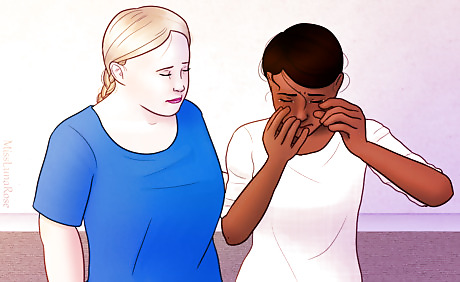
React with compassion and gentleness. The person may be experiencing severe feelings of panic, frustration, confusion, or general distress. It is not their fault, and they cannot stop it. They're under extreme stress, and they need patience and empathy.
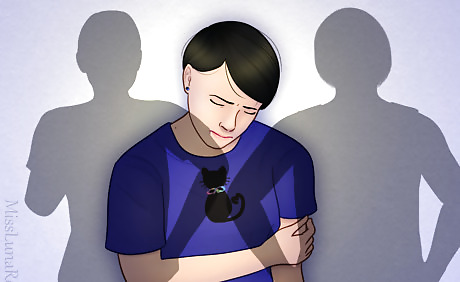
Remove any immediate sources of stress. Meltdowns are caused by too much stress, so one of the ways to help is to remove as many stressors as you can. If something in the environment is upsetting the autistic person, get rid of that thing. Shoo away anyone who is staring. Don't let people touch the autistic person without permission. Rescind any demands that were placed on the autistic person. Stop other people from getting in the autistic person's way. Say "Let her be" or "Leave him alone."

Help them leave. Say something like "Let's get some air" or "Come with me" and lead them to a quieter place. You could take them outdoors, to a bathroom, to a bedroom, or to an unoccupied place. Holding hands may be overwhelming to an autistic person mid-meltdown. You might beckon them to follow you, or have them hold on to another part of you (such as your belt loop).
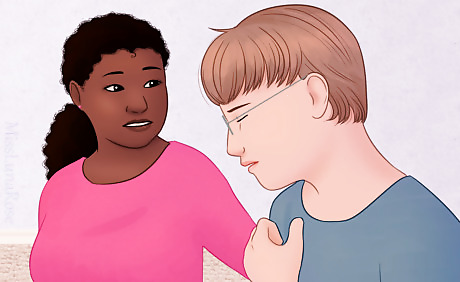
Ask or infer what they need. The autistic person instinctively knows what will calm them, whether it's a glass of water, a tight hug, a comfort item, or just some alone time. If they are struggling to speak, get them a pen and paper, or ask questions that can be answered with a thumbs up or thumbs down. If the person seems overwhelmed, it's best not to press them with questions. You can ask "Do you need quiet?" or "Do you need to be alone?" and see if they give you a thumbs up or thumbs down. If they want to be alone, leave for a while, and check on them later.

Be patient. The autistic person may cry, rock back and forth, make a mess, or do other unusual things. This is a reaction to stress, similar to a panic attack. Sometimes, they just need to "cry it out." Be nonjudgmental, and wait for it to be over. For example, if the person has thrown themselves on the floor sobbing, you could lie down on the floor too and stay with them until they've calmed down. This shows empathy and gives them space too. If it's too intense for you to be comfortable staying there, it's okay to say "I'll be back" and leave the room.

Give them time to recover. Sometimes, five minutes will be enough for them to calm down. Other times, they may need an hour of quiet activities only. Play it by ear, and never force a child to leave before they're ready—this will likely trigger the meltdown they've been holding back.
Teaching a Family Member to Manage Meltdowns

Set up a quiet space for your autistic family member. Their bedroom, a closet, a basement corner, or another quiet area can be a good place for an autistic person to go when overwhelmed. Make it as closed-off as possible. Tell the autistic person that they can go there when they're overwhelmed, and tell other people that they need to leave the autistic person alone when they're in their quiet place.
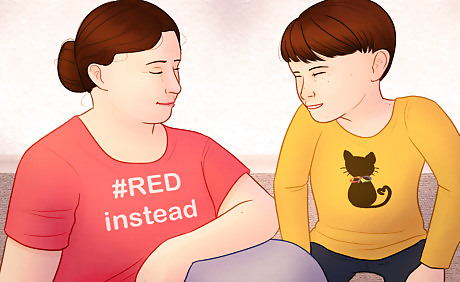
Teach them to advocate for their needs. Most autistic people can identify when they feel upset, and have a feeling of what they need. Explain that it is important that they speak up for their needs. Social stories and modeling can help them learn what to do. Try teaching them one of the following phrases: "Break, please." "I need to go to my corner." "I need quiet time, please." "May I go to my room?"
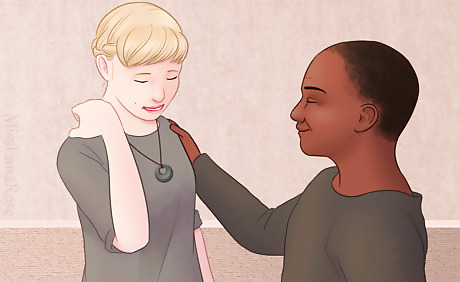
Pay attention when they advocate for themselves. They won't continue the behavior unless you reward it by listening. Do what they asked you to do. This proves to them that advocating for themselves is a good strategy and that it works better than bottling up stress until it reaches a meltdown point. Body language is still self-advocacy. Putting up a hand to stop a kiss is self-advocacy. Refusing to wear an itchy sweater is self-advocacy. Listen, even when it's not convenient to you. A nonspeaking person can learn to speak up via alternative and augmentative communication (AAC). AAC can improve communication skills, which reduces meltdowns.
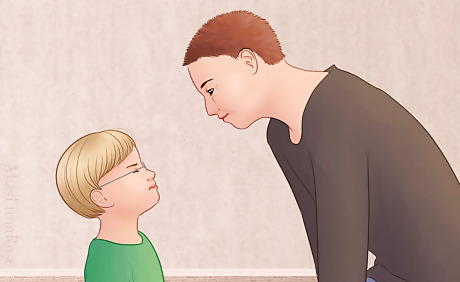
Pay attention to facial expressions and body language, especially if they struggle with communication. Watch for stress buildups, and ask about the need you want them to communicate. For example, ask "Do you need a break?" Listen or watch for their response. If they nod, you can model for them: "Yes, I need a break, please!" Do this while you lead them away. They will associate the phrase with the action, and start saying the phrase when they need to leave. If they say no, but still seem upset five minutes later, you can intervene: "You look really overwhelmed. Let's take a break." Then lead them to a calm place. Don't hold their needs hostage. Never force them to wait until they can speak the phrase.
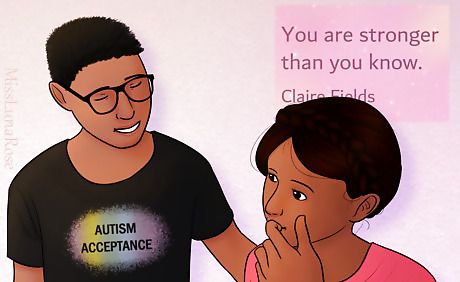
Help them identify triggers, and find appropriate coping strategies. This can help them stop a meltdown before it occurs. Try making a list of triggers and strategies together. Consider both what they could do, and what you could do in order to reduce stress. This can include... Sensory tools A list of people they can ask for help A comfort item A "secret sign" to signal to caregivers that the child needs a break

Take aggression seriously. Aggression is rare in autistic children, and is usually more reactive than proactive. It can happen for a number of reasons. An aggressive outburst might have been caused by a physical sense of danger: somebody blocking their way when they needed to leave, another person bullying them, or an adult reacting abusively. Understand the situation before attempting to impose consequences. Ask the autistic person what happened and why they reacted this way. Ask other people what exactly happened. If somebody behaved physically towards the autistic person (e.g. attempting to pin them down against their will), then the autistic person's reaction was actually a panicked attempt at self-defense, and you must address the other person's behavior. Watch out for therapists and caregivers who are aggressive or cruel towards the autistic person, such as in some forms of ABA therapy. If violence results as an escalation, talk to both parties, not just the autistic child. For example, if a boy takes a girl's toy and she hits him, it is important to address both his and her behavior.
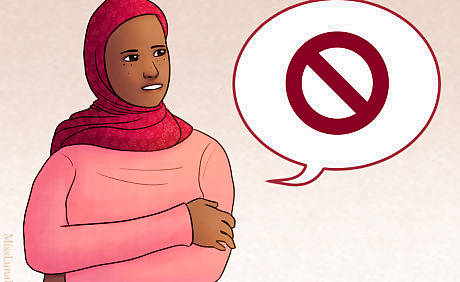
Be firm about unsafe and unkind behavior. Screaming, crying, flopping to the floor, and stimming are all natural during meltdowns. However, being mean or needlessly aggressive is never acceptable. Here are some ways to deal with it: "It is not okay for you to hit your sister. We are not a violent family. If you're mad at her, you need to use your words or take a break." "We don't call names when we're upset. It wasn't his fault that you were unhappy. How do you think he felt when you called him ugly?"
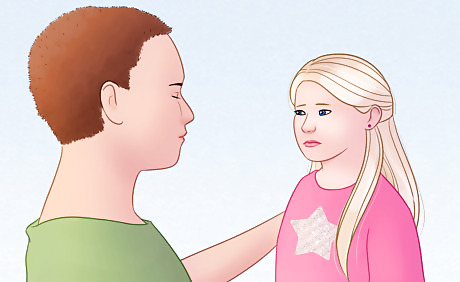
Teach positive alternatives to misbehavior. Simply telling a child that something is wrong won't help them—they need to know how to deal with their feelings. Work together with them to come up with alternate solutions. "If you need to punch things when you're upset, do you think it would work for you to punch some pillows or cushions instead? It's okay to punch the couch when you're angry." "I know that it's not fun for you to scream and cry in the restaurant. Next time you start to feel upset, you can tug on my sleeve and let me know that you need a break, and I'll take you outside so you can feel better." "Kicking the back of Mommy's chair makes her very uncomfortable. What if you rocked in the rocking chair instead?"

Praise them when they handle things well. Complimenting them will reinforce the good results. Show them that you noticed them using their good coping skills and that you are happy with them. "I saw you asking your therapist for a break today. That was very mature of you to recognize that you needed to pause." "Good job punching the pillows! That's much better than punching your brother." "Thank you for telling me that you needed to leave."

Talk to them after they've calmed down and can think straight. Listen patiently to hear the full story. What caused the meltdown? What could they do in future situations like this? What could you do to help them? This will help you work out specific strategies together, and help the child know that they can come to you in the future.

















Comments
0 comment